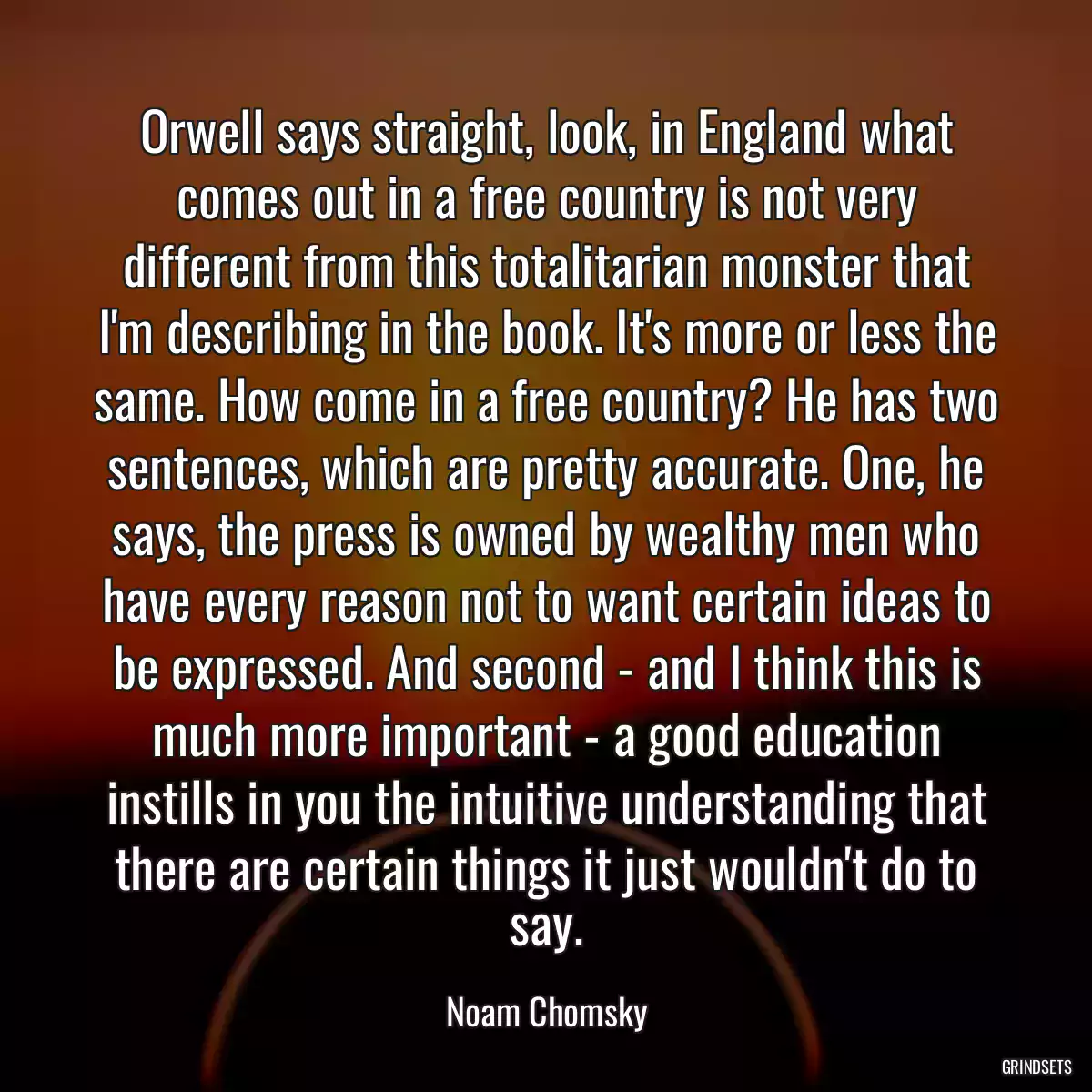
Orwell says straight, look, in England what comes out in a free country is not very different from this totalitarian monster that I'm describing in the book. It's more or less the same. How come in a free country? He has two sentences, which are pretty accurate. One, he says, the press is owned by wealthy men who have every reason not to want certain ideas to be expressed. And second - and I think this is much more important - a good education instills in you the intuitive understanding that there are certain things it just wouldn't do to say.